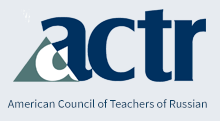Russian Language Journal
Keywords
memes, project, emotion, bonding, literacy
Abstract
The COVID-19 pandemic has created various challenges for language teachers. For instance, the online teaching/learning environment makes it difficult to create peer-to-peer relations in the classroom and to engage students in learning (in or outside of class). Furthermore, many students today have difficulties focusing on school assignments because they are emotionally affected by the pandemic. This paper proposes that memes can be part of the answer to these issues. Memes, a new internet genre, typically involve a witty juxtaposition of image and text that expresses their creators’ emotions about a widely relatable situation. This paper discusses a pedagogical innovation in the form of a meme-based final project. This project was designed on the basis of Harvey and Palese’s (2018) framework for using memes in the classroom and implemented in an intermediate Russian language course. In this project, students were asked to search for Russian memes online, to engage in critical discussions of the meme genre, and to create their own memes in Russian on the following topics: Russian language, university/school, COVID, and New Year. This paper describes project design and implementation as well as this project’s effectiveness in engaging students, creating healthy peer relationships, and providing an outlet for COVID-related emotions.
Recommended Citation
Vinokurova, V. (2021). Memes: Learning, Bonding, and Emotional Support in Times of COVID-19. Russian Language Journal, 71(2). https://doi.org/10.70163/0036-0252.1014


